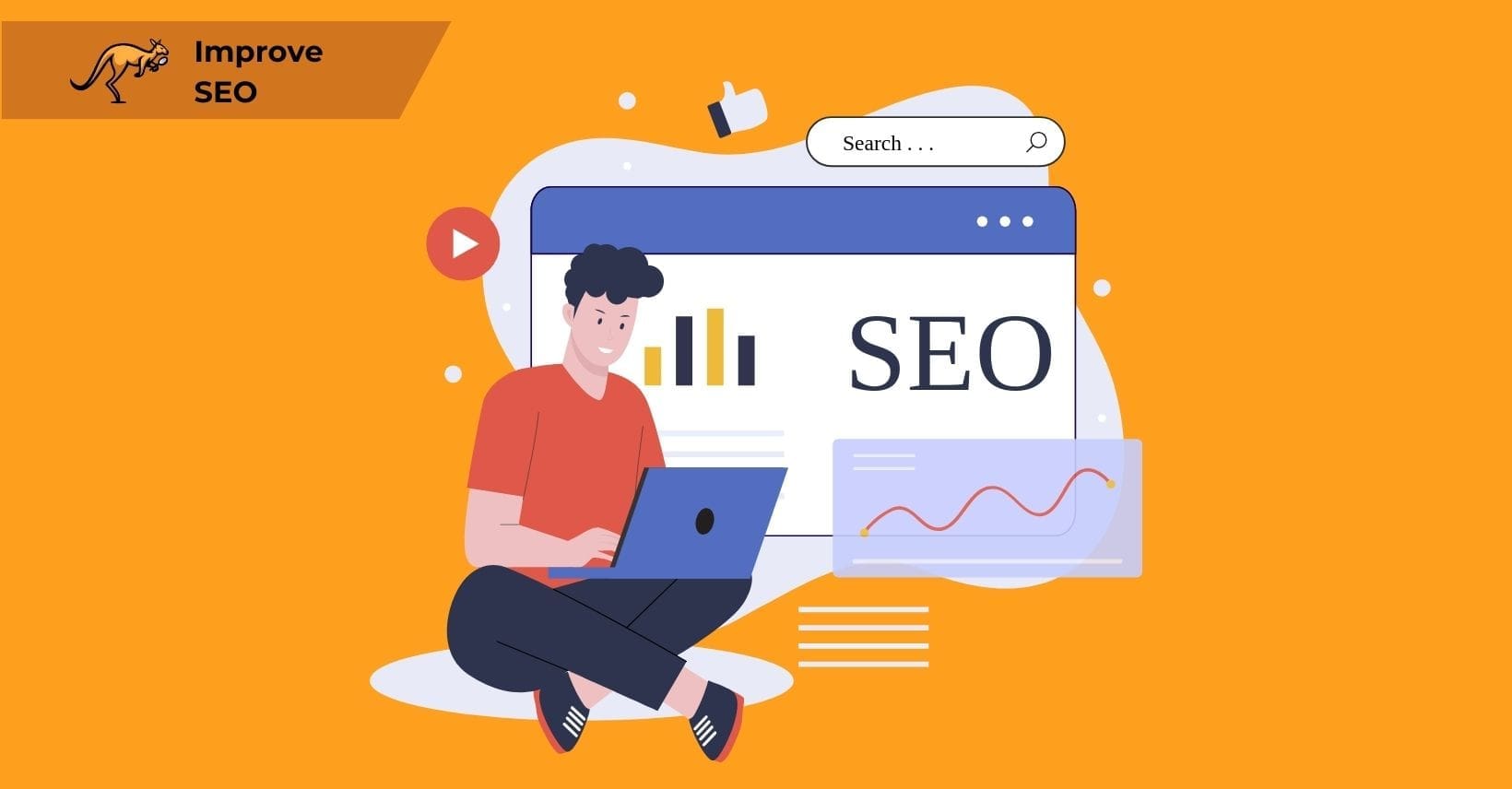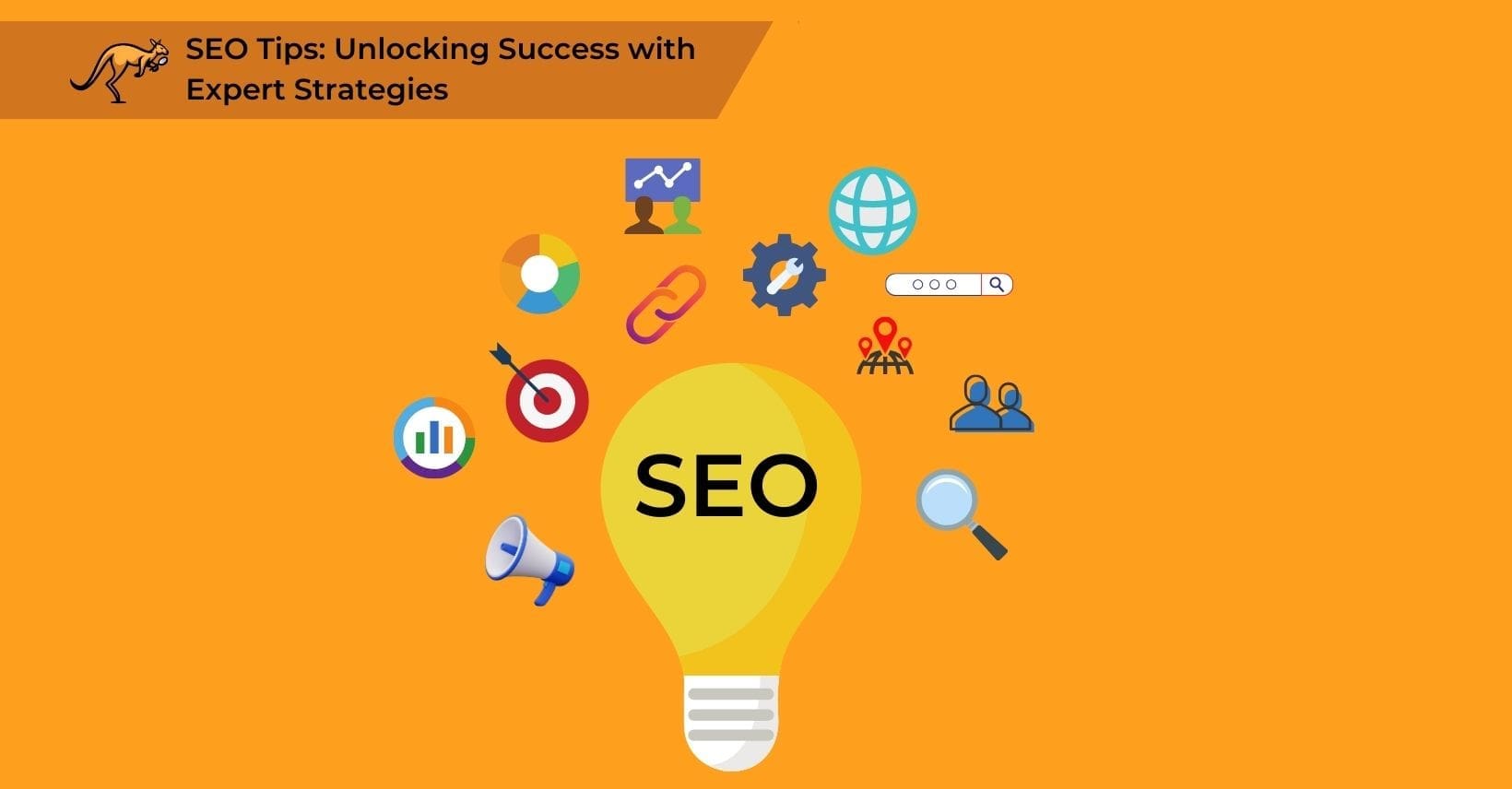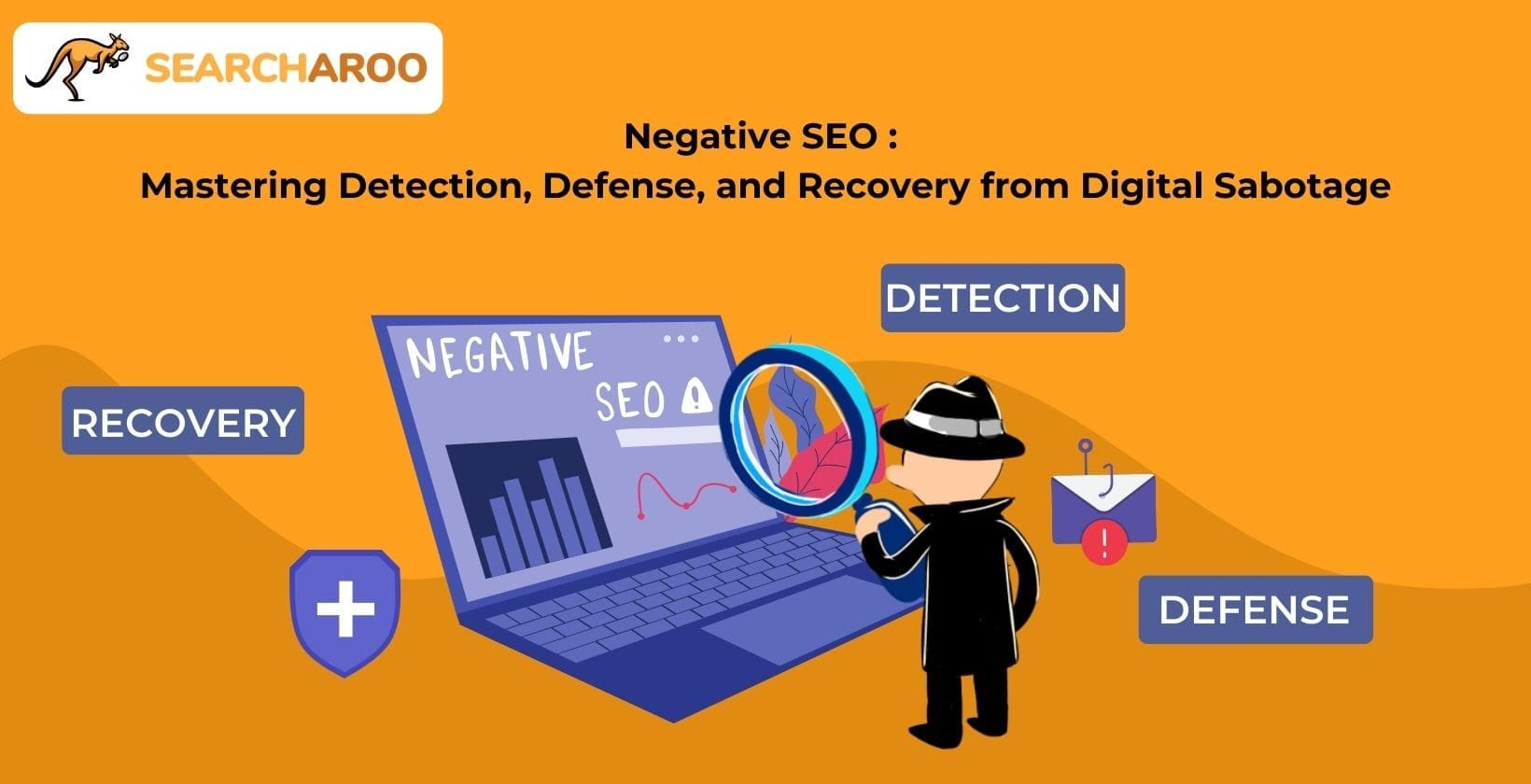Search engine optimization (SEO) is essential for any website to attract visitors or generate revenue.
Whether you aim to engage users with informative blog posts or convert visitors into customers, SEO is pivotal in determining your site’s visibility in search results. It’s a complex necessity that all site operators must tackle, regardless of the size or niche of their website.
This guide will provide practical strategies for mastering SEO, ensuring your efforts lead to optimal outcomes. Refining your approach can significantly enhance your website’s performance for beginners and those familiar with SEO.
Understanding these principles will naturally lead you to grasp more about the foundational elements that underpin successful SEO strategies.
The Basics of SEO
Understanding SEO is crucial before you can enhance it. At its core, SEO determines how search engines interpret your site. An optimized website and content lead to higher placements in search engine results.
Consequently, this visibility increases the likelihood of attracting more visitors as your site appears more frequently in relevant searches.
Although the concept seems straightforward, the practice involves numerous strategies and tools with distinct applications.
Multiple tactics can improve your SEO, while others leverage external sites to enhance your visibility. Despite its complexity, grasping SEO basics is more straightforward than initially appears.
Exploring these foundational elements sets the stage for delving into the deeper objectives that drive the continuous evolution and application of SEO techniques.
The Aims of SEO
Enhancing SEO on your website entails various actions. Still, they invariably aim to boost your site’s optimization for search engines by aligning with their algorithms.
Each action you choose should steer towards enhancing your ranking potential. Effective SEO requires pinpointing and targeting keywords that resonate with your audience, elevating your visibility in search results pertinent to their queries.
This strategy broadens your reach and connects you with genuinely interested users, leveraging SEO as a formidable asset for any business or content platform.
However, navigating SEO has its risks; missteps can degrade your ranking. This underscores the necessity of grasping the fundamentals of SEO, including what typical projects entail and how best to approach these initiatives.
With this foundation, you’re better positioned to explore the mechanics of SEO.
How Does SEO Work?

SEO, a comprehensive term, encompasses various strategies to enhance website visibility.
These strategies optimize content, keywords, and meta information to make websites more attractive to search engines. Additional tactics include securing backlinks from reputable sites and ensuring smooth site navigation. These elements influence how search engines perceive your website, affecting your rankings.
Generally, securing higher rankings for a keyword position you prominently in Google’s search results, enhancing your visibility to potential users.
The essence of SEO lies in achieving top rankings for relevant keywords, positioning your site advantageously in Google searches, and improving your chances of attracting new visitors.
In the next sections, we’ll explore specific improvements to refine these strategies further and achieve even greater success in your SEO efforts.
What are the Considerations to Improve SEO Strategy
Many new SEO strategies often falter when setting the right priorities. Focusing on minute details is common, but strong foundational practices are crucial for SEO success.
These foundations must be robust to enhance your SEO and achieve better Google rankings. While niche elements are important, they only serve their purpose effectively when supported by a solid base; otherwise, they merely act as fluff.
Here are things you should keep in mind:
- The Indexing Process
The technical side of your SEO is a major consideration, especially early on.
For a website to rank anywhere, it must undergo three distinct steps, all of which are influenced by technical tweaks.
First, search engines need to find the site. Then, they need to scan and understand more about them, such as keywords and main topics.
Then, they need to index the site, adding it to a database of other websites that can appear in search results.
While this sounds simple, these technical elements are not just something search engines do automatically.
They are heavily based on your technical SEO – something we will cover slightly later.
- Your Site’s Goals
When looking to improve your SEO, it is vital to consider your site’s overall goals.
Your site’s purpose greatly impacts your approach and the results you can expect.
This includes:
- Who your audience is
- What are your main selling points are
- What kind of content are you publishing
- How you are going to market your brand
If you are struggling with any of these, your SEO will suffer because you will not have a clear direction to follow.
For example, target keyword research needs an obvious direction for you to focus on based on what you are trying to sell to your users.
Without that, you will struggle to pick a starting point and get the desired results.
- Your Limitations
One site can’t do everything.
It does not matter how much you optimize your content or how many people you know – there will always be something you simply can’t do.
This could be something major, like being unable to reach a certain audience because your products are irrelevant.
It also might be on a smaller scale, like not having enough online presence to be mentioned by larger publications.
You must keep your goals relative to your business size and stay realistic. For example, suppose you are a small business focusing on your local area. In that case, you might not need international exposure.
Do not bankrupt yourself by chasing an SEO pipe dream that is not even viable at your business’ current size.
Improving Your SEO
No single site can excel in every aspect. Optimizing your content and expanding your network is crucial, yet they won’t always guarantee success in every area.
For instance, you might struggle to engage a specific audience if your offerings don’t align closely with their needs. Similarly, a limited online presence could prevent recognition from major outlets. It’s crucial to align your objectives with the scale of your business.
A small business, for example, might not benefit from striving for global recognition when local prominence is more applicable and achievable.
Avoid overextending your resources on unattainable SEO goals that don’t match your current operational scope. As you ponder these limitations and set realistic expectations, it’s also valuable to consider ways to further enhance your SEO effectiveness.
Technical SEO Elements
Suppose we think of SEO as the essential pulse of any website. In that case, technical SEO serves as the core of that heartbeat.
This specialized area of SEO includes tasks like repairing broken links, enhancing page load speeds, and altering metadata to influence how search engines perceive pages.
Technical SEO encompasses any measures undertaken on your website to boost your ranking potential. Yet, technically, optimizing your site involves more than just tweaking individual elements.
Your website operates as a dynamic system, where each change affects its search performance. Mastering technical SEO requires strategic planning to fully grasp and implement its diverse components.
As we continue to explore the intricacies of technical SEO, we’ll also touch on the broader spectrum of general technical quality, which plays a critical role in supporting your overall SEO framework.
General Technical Quality
The quality of your technical SEO hinges crucially on the overall quality of your site, which extends beyond aesthetics to its technical execution.
A website must deliver a positive user experience to be deemed a valuable resource. For instance, if a page loads sluggishly or frequently encounters errors, it frustrates users and diminishes their likelihood of returning. Furthermore, slower-loading sites tend to rank lower in search results, regardless of the quality of their content.
This situation often justifies the investment in a web developer, especially if improving technical facets feels daunting.
However, quick learning (or help from a professional coder) can fix many of the most notable technical flaws.
| COMMON PROBLEMS | DISCRIPTION | HOW TO FIX |
| Site Loading Speed | A website’s loading speed is a crucial technical factor, often overlooked because it doesn’t directly impact content quality. However, slow-loading sites can significantly harm search engine rankings, as faster sites are prioritized. Search engines, like Google, prioritize user experience, and slow speeds degrade this experience, leading to lower rankings. | Issues with loading speed typically stem from coding inefficiencies or large file sizes. To address this, minimize on-page images, videos, and files. Hosting quality and the amount of content a page tries to load also affect speed. Adjusting these elements can enhance site performance. |
| Website Navigation | Internal link structure is vital for site quality. Broken or poorly connected links reduce user-friendliness, impacting users and search engine crawler bots. If search engines can’t navigate your site or links are embedded in images they can’t see, navigation suffers, leading to higher bounce rates and lower SEO rankings. | Improving navigation may involve: Changing link anchor text to be more descriptive. Reworking the navigation bar. Ensuring major pages are easily accessible. The goal is to keep all important pages no more than a couple of clicks away. |
| URL Structures | Though minor in technical SEO, URL structures affect site ranking. Search engines prefer shorter, simpler URLs over lengthy, complex ones. Simplified URLs enhance bot navigation and SEO performance. | Keep URLs as concise as possible, avoiding unnecessary words and levels. For example, simplify “https://www.sitename.com/article/blog/authorname/december/articlename” to “https://www.sitename.com/blog/articlename.” |
| Dead and Broken Links | Dead links lead to non-existent pages, and broken links lead to no longer available pages. Both disrupt user experience and search engine crawling, negatively impacting site rankings. | Ensure all links direct users to active pages. SEO tools can identify broken or dead links, but manual checks are also effective. Update or reactivate destination pages as needed. |
| Duplicate Content | Duplicate content, whether within a single site or across multiple sites, harms site quality. Search engines struggle to identify the original version, leading to ranking issues. | If duplicate content exists on the same site, use canonical tags to mark the original content. For multiple sites, create unique content to replace duplicates. Rewording existing content can also mitigate this issue. |
| Sitemaps and Robots.txt | Sitemaps and robots.txt files are critical for technical SEO but often overlooked. Sitemaps help search engines index site pages, while robots.txt files control bot access to specific parts of the site. | Implementing sitemaps and robots.txt files is straightforward. Generate both files and customize robots.txt to restrict bot access to desired URLs. This setup enhances search engine interaction with your site. |
Content Marketing Elements

Technical SEO primarily deals with on-page optimization, whereas content marketing encompasses both on-page and off-page strategies.
Content marketing aims to leverage content to attract users to your site, commonly through guest posts, blog articles, and press releases. These methods vary in approach but share the common goal of engaging your target audience where they are active online.
However, content marketing serves another crucial function: it helps generate backlinks—links from other sites that point back to yours, which can enhance your SEO.
Backlinks can be acquired naturally when other sites link to yours voluntarily or through paid efforts, where you compensate a third party to create these links.
Mastering content marketing and link building is vital for boosting your search engine rankings.
| COMMON PROBLEMS | DISCRIPTION | HOW TO FIX |
| Content Relevance | Content relevance is crucial for SEO, as it ensures your content matches what your target audience is searching for. Effective SEO targets keywords people are actively searching for, not just what you want them to search for. To enhance relevance, use appropriate keywords and context. For example, a blog on pet care will perform better if it targets terms your audience frequently searches for, like “pet care tips.” Misaligned content, like discussing AI-generated artwork on a site targeting physical art supplies, won’t perform well. | Proper keyword research is essential to identify relevant terms. Ensure the context matches your target audience’s searches, making your content more likely to appear in relevant search results. |
| Poor-Quality Content | High-quality content is vital for effective content marketing. Search engines evaluate content based on relevance, low bounce rates, and other factors. Content should offer genuine value, avoiding mere advertisements or filler. | Create original, valuable content that engages readers. Ensure it provides practical value and keeps users interested in your site. Assess content from an outsider’s perspective to gauge its quality. |
| Poor Content Structure | A well-structured content piece helps search engines understand its topic, improving SEO. Disorganized content confuses search engines and hinders ranking. For instance, content targeting “hats” but discussing cars in the middle section sabotages SEO efforts. | Organize content clearly around its main topic. Use headings, lists, and manageable sections to improve readability and SEO. This helps both users and search engines understand and engage with your content. |
| Image Optimization | Beyond affecting page loading speeds, image metadata tags influence SEO. Search engines rely on these tags to understand image content, as they can’t see images directly. | Always use accurate, descriptive meta tags for images. Ensure keywords are relevant to both the image and the page. Alt text is also important for accessibility and improving SEO, providing descriptions for screen readers and search engines. |
Link Building Elements
Link building reigns supreme in off-site SEO and significantly impacts search engine rankings. It entails generating high-quality backlinks from various sources to your website, which enhances how search engines view your site. The origins of these backlinks vary, and their effects differ, yet their relevance is crucial. Link building has become a distinct industry featuring specialized news platforms and dedicated agencies. However, neglecting to build links or improperly using them can severely damage your SEO effectiveness.
| COMMON PROBLEMS | DISCRIPTION | HOW TO FIX |
| Not Link Building | Ignoring link-building is a major mistake. Sites with a strong link profile appear more relevant to search engines, leading to higher rankings. The quality and authority of these links matter. A link from a high-profile site is more valuable than one from a lesser-known blog. Target relevant, high-quality sites for an effective link-building strategy. | Begin by creating valuable content that other sites want to link to or consider guest posting. Diversify your links across multiple high-quality sites rather than relying on a single source. |
| Not Targeting the Right Links | Targeting irrelevant links, like getting links from car dealerships for a gardening site, is ineffective. Links should be relevant to your content and audience to enhance SEO success. | Conduct keyword research to identify relevant keywords and sites your audience frequents. Focus on links from sites that align with your content and audience interests. |
| Broken Links | Broken links can harm SEO as they offer no value to search engines. This can occur due to changes on either the linking or your site. | If URLs on your site change, use redirects or update the links. If the linking site changes the content, contact the site owner to fix the link. Address broken links promptly to maintain SEO value. |
| Link Spam | Link spam, which includes irrelevant or low-quality links, can lead to search engine penalties. High-quality links are far more valuable than a large number of spammy links. | Avoid relying on spam links. Build a high-quality, diverse link profile. If you have unwanted spam links, contact the site owner to remove them or use Google’s disavow tool. Focus on creating relevant, useful content to naturally attract high-quality links. |
Black Hat SEO
Black hat SEO encompasses practices considered unethical for boosting website rankings. Such tactics are generally condemned and pose risks of degrading your rankings when deployed.
Search engines maintain strict policies against spam-like or aggressive actions and swiftly sanction violations. Common black hat strategies include buying links, creating private blog networks, and other manipulative actions to deceive search engines.
These methods often lead to severe penalties, including removing your site from search listings altogetIt’s It’s advisable to steer clear of black hat techniques despite their potential for quick gains, as the danger of irreversible damage to the site’s credibility and rankings is high.
Moving forward, it’s essential to consider alternative strategies that adhere to ethical guidelines while effectively enhancing the site’s visibility.
Other Search Engine Optimization Techniques
The techniques detailed here represent effective strategies for overhauling SEO, yet they represent just a portion of the available approaches.
While directly enhancing SEO rankings might seem appealing, establishing a robust foundational strategy is more beneficial. The techniques that follow, though less direct, can significantly strengthen your SEO framework.
It’s crucial to remember that there is no single perfect SEO strategy; each site or business must address its SEO challenges uniquely.
Focus on Local SEO
For local businesses, optimizing for local SEO can attract more geographically relevant users than merely targeting broad keywords. For instance, a business selling locally would benefit little from ranking nationally.
Local SEO tailors your site and content to local users, making your services more accessible for local searches and potentially providing a competitive edge in your area.
This approach generally limits visibility to local search results, which is important if your target audience is local.
Use The Proper Tools
Utilizing the right SEO tools is indispensable for gauging the site’s ranking potential. These tools enhance your understanding of SEO and streamline essential data tracking.
Improving A Web Page
Every web page has its strengths and weaknesses. Issues like poor meta descriptions can influence how tools such as Google Search Console and Google Analytics interpret your page.
Discrepancies between mobile and desktop functionalities, oversized image files, or incorrect page titles could lower your SEO ranking.
Content optimization and addressing site-wide issues like meta tag adjustments are necessary for maintaining a healthy website profile.
Managing External and Internal Links
Effective link management involves more than disavowing unwanted links; it requires maintaining an updated and functional link profile.
Sudden disruptions in this profile could degrade the site’s perceived relevance, significantly impacting your rankings if those links are crucial to your backlink strategy.
Employing proper monitoring tools can simplify the management process and pinpoint issues when your backlink strength falters.
Testing Changes for Search Engines
In SEO, continuous testing and adaptation are key. Whether optimizing a page for mobile viewing or adjusting meta tags, always be prepared to make modifications.
These small changes, while seemingly minor, can provide insights into how slight adjustments might impact a site’s performance. Experimenting with SEO strategies, such as adjusting for better organic traffic targeting, is critical in understanding search engine algorithms.
As you refine your approach, consider the benefits of strategic partnerships, which could also enhance your SEO effectiveness.
How Link-Building Agencies Enhance Your SEO Performance?
Link-building agencies excel in developing strategies that effectively boost your website’s SEO performance. By creating a personalized link acquisition strategy, they enhance your site’s authority and relevance, as recognized by search engines.
This critical process involves selecting high-quality, pertinent websites for potential backlinks, which is crucial for elevating your site’s visibility and ranking.
Such targeted strategies ensure that the links acquired are meaningful and abundant, driving organic traffic to your website and enhancing SEO metrics comprehensively.
These agencies also commit to continuously monitoring and optimizing your backlink profile, including repudiating harmful links that might degrade your SEO.
They adapt their strategies to align with the latest updates in search engine algorithms, maintaining a robust backlink profile. This proactive management protects your site from potential penalties and enhances its credibility, helping you achieve sustained, impactful SEO results.
With this strategic support, you can concentrate on other business priorities and be confident in your competitive stance in the digital marketplace.
For those considering a deeper partnership, understanding the nuances of why an agency like Searcharoo could be your optimal SEO ally.
Why Choose Searcharoo as Your Trusted SEO Partner?
At Searcharoo, our expert team understands SEO complexities, driving us to develop strategies that boost your site’s search engine performance.
We commit to a client-focused approach, crafting solutions that align with your business goals and deliver measurable results.
Our process transparency ensures you remain informed about the advancements we achieve together, placing your success at the forefront of our efforts.
Choosing Searcharoo as your SEO partner aligns you with a dedicated ally committed to your business growth. We constantly evaluate our strategies’ effectiveness, making informed adjustments to maximize your online potential.
Our proactive stance keeps us adaptive to algorithm changes, ensuring your business adapts and thrives. Let us enhance your digital footprint, increasing site traffic and transforming visitors into committed customers.
Where to Go From Here
SEO is such a broad subject that this article could continue for twice the length and still not be a fully comprehensive breakdown.
For example, niche subjects include voice search results and how to target voice search users based on common speaking patterns.
However, this guide should have helped you understand the main principles behind search engine optimization.
SEO can be a massive challenge, but it can be incredibly rewarding, especially if you are trying to promote a site or service online.
It is all about understanding your goals and the resources available to you and using them to boost your site’s reach.
If you find a new SEO opportunity or discover something that might work, press the advantage. In SEO, there are rarely wrong choices – just experiments you can back away from if they do not work.





